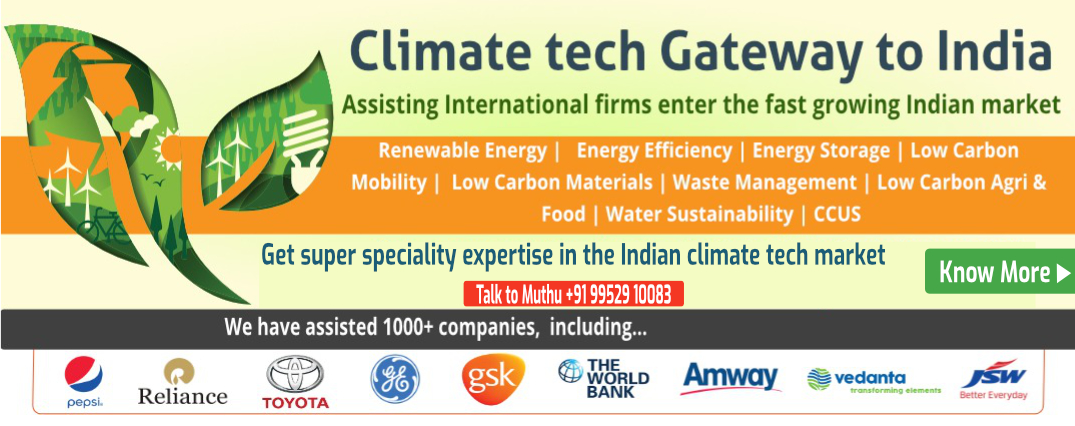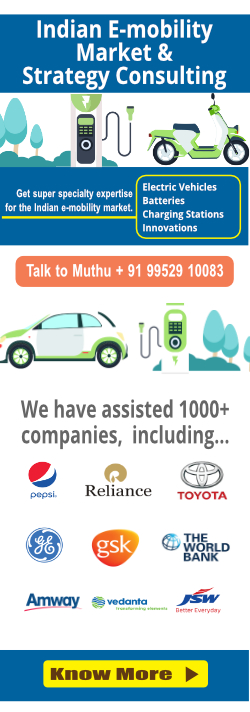This post is a part of Climate G2I Intelligence series from Energy Alternatives India (EAI), India’s leading climate-tech consulting firm.
G2I stands for Gateway 2 India, and provides comprehensive market intelligence and go-to market assistance for International firms entering the Indian climate-tech market. More about Climate G2I from here
Macquarie Capital’s recent acquisition of a minority stake in ChargeZone, a leading Indian electric vehicle (EV) charging network company, underscores the growing confidence of international investors in the potential of India’s EV market. This strategic investment highlights the importance of India’s burgeoning EV market and the critical role of accessible charging infrastructure in its development.
ChargeZone is a key player in the Indian EV charging sector, specializing in the establishment of high-speed charging networks across India. The company is focused on addressing the growing demand for efficient and convenient charging solutions that will facilitate the widespread adoption of electric vehicles. This investment by Macquarie Capital, a global investment and advisory firm, will empower ChargeZone to further scale its operations and meet the needs of a rapidly transforming transportation landscape.
The Indian EV market is experiencing significant growth, driven by a combination of factors. Government initiatives like the FAME scheme, which provides financial incentives for EV purchases and charging infrastructure, play a crucial role in driving adoption. Additionally, reduced GST on EVs and income tax exemptions on EV loans further make electric vehicles an attractive proposition for Indian consumers. Rising environmental awareness and a desire for cleaner transportation solutions, paired with concerns about rising fuel prices, are also stimulating market demand.
Beyond these drivers, emerging partnerships and alliances are crucial for consolidating the growth of India’s EV charging ecosystem. Collaborations between charging infrastructure companies like ChargeZone, OEMs, battery manufacturers, technology providers, and government bodies are essential for creating integrated solutions and ensuring an efficient user experience.
For example, Hero MotoCorp and Ather Energy have joined forces to establish an interoperable fast-charging network for electric two-wheelers across India. By combining their existing infrastructure (VIDA and AtherGrids), they aim to cover over 100 cities with over 1,900 fast-charging points, offering seamless charging solutions for a significant portion of the EV market.
Similarly, MG Motor and Tata Power have partnered to establish an extensive fast-charging network across India’s major cities. This collaboration leverages MG Motor’s commitment to environmentally friendly vehicles and Tata Power’s expertise in providing charging infrastructure, creating a synergy to address range anxiety and instill confidence in EV owners for long-distance travel.
Furthermore, Euler Motors and Magenta Mobility have partnered to cater to the last-mile delivery segment. Euler Motors, a manufacturer of electric three-wheelers, has partnered with Magenta Mobility, a leading provider of electric mobility solutions, to set up a fleet of electric two- and four-wheelers for Amazon India’s delivery partners in Hyderabad. This collaboration demonstrates the potential of EVs in various sectors and the importance of collaboration to facilitate wider adoption in specific segments.
These are just a few examples, and the sector is witnessing a multitude of partnerships between established players, new entrants, and various stakeholders, fostering innovation and accelerating growth. Such collaborations are crucial for addressing infrastructure gaps, ensuring interoperability, and creating a robust ecosystem that supports the long-term success of India’s EV ambitions.
However, the sector faces challenges such as a need for widespread charging infrastructure development, standardization and interoperability across different charging systems, ensuring grid stability for increased power demand, and securing consistent investment for expansion.
The Indian government’s focus on indigenization is also shaping the future of the EV charging sector. Initiatives to promote domestic manufacturing capabilities aim to reduce reliance on imported components and increase the contribution of Indian companies to the growth of this industry. While the extent of indigenization currently varies, the presence of Indian companies like ChargeZone highlights the increasing participation of domestic players in this sector.
Overall, Macquarie Capital’s investment in ChargeZone signals the enormous potential of India’s EV sector and the key role that charging networks play in its expansion. This partnership, combined with supportive government policies, rising consumer demand, and collaboration among key stakeholders, is poised to transform India’s mobility landscape and contribute to a more sustainable future.
This post is a part of Climate G2I Intelligence series from Energy Alternatives India (EAI), India’s leading climate-tech consulting firm.
G2I stands for Gateway 2 India, and provides comprehensive market intelligence and go-to market assistance for International firms entering the Indian climate-tech market. More about Climate G2I from here










